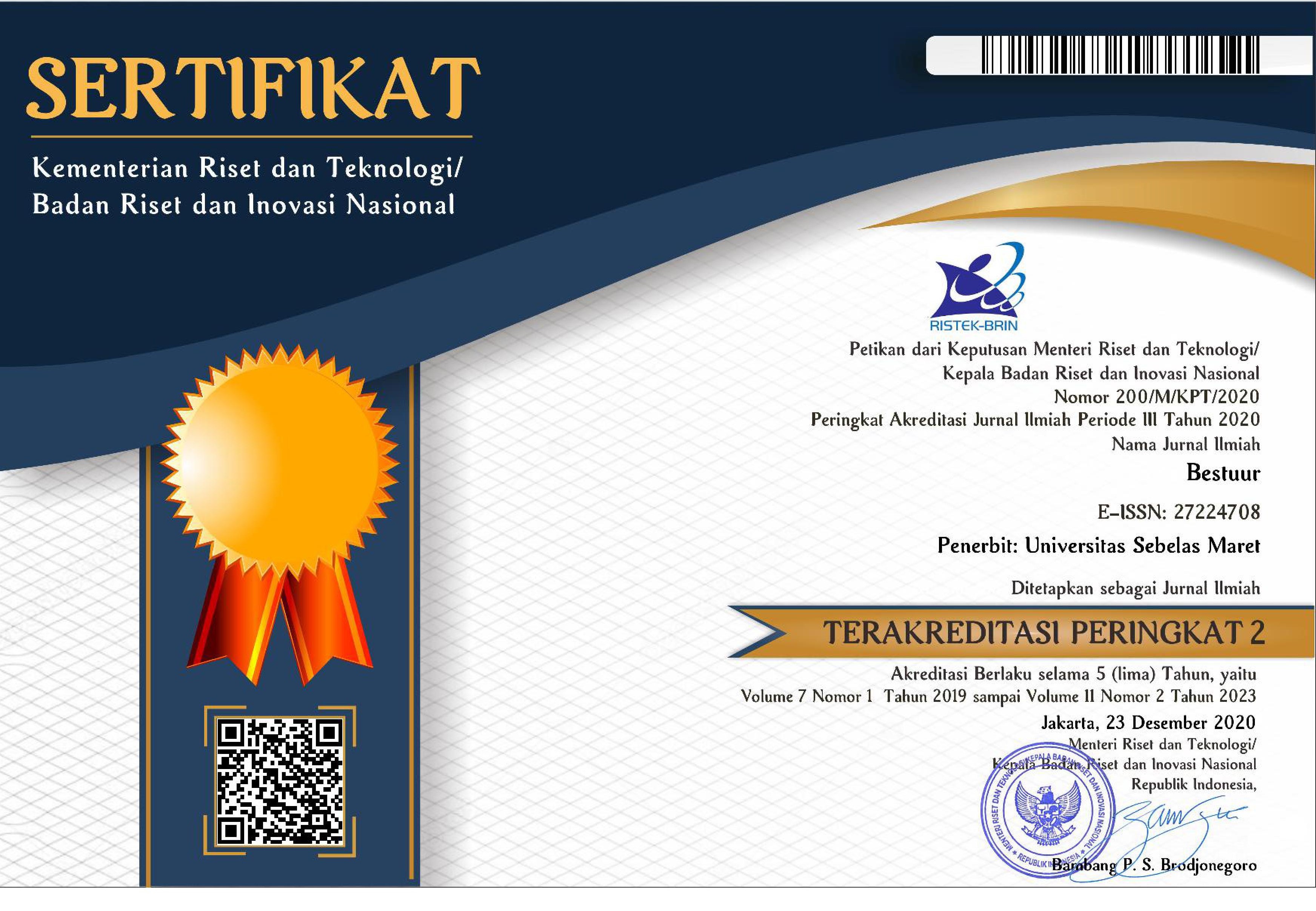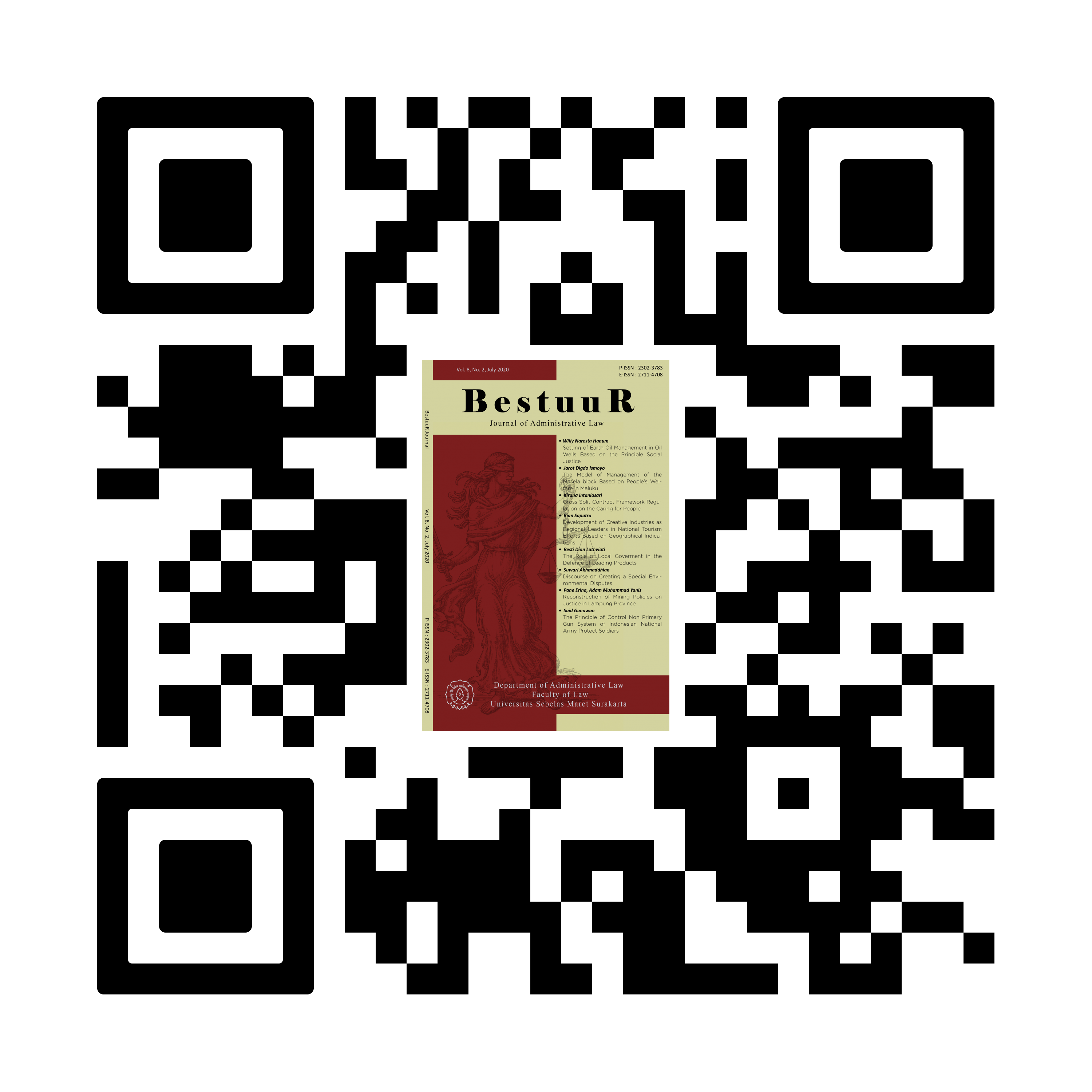Coherence of the Rules of Sharia Against Pancasila
Abstract
This paper aims to find the coherence of sharia principles towards Pancasila. Pancasila as the philosophical basis of the state has an important role in the life of the nation and state. The principles of sharia are important principles for Muslims in muamalah. The type of research used is normative legal research to find coherence between sharia principles in Pancasila. The approach used is a conceptual approach. Secondary data were collected through literature study. Analyze the data using the syllogism method of deduction and interpretation, where the sharia principle is coherent with Pancasila. The results showed that first, the concept of ownership of property and payment of zakat and justice is coherent with the first, second and fifth precepts of Pancasila. Second, the principle of willingness is coherent with the second principle of humanity which is just and civilized, the principle of equality is coherent with the third principle of Indonesian unity, the principle of honesty and truth is coherent with the principle of the Almighty God and the second principle of fair and civilized humanity, the principle of benefit and mutual advantageous in line with the fifth precepts of social justice for all Indonesian people, the written principle in sharia principles is in line or coherent with the fourth principle of populism, which is led by wisdom in deliberation / marriage.
Keywords: Coherence; Sharia Principles; Pancasila.
Full Text:
PDFReferences
Ahmad Saebani, Beni , 2018, Hukum Ekonomi dan Akad Syariah di Indonesia, Bandung: Pustaka Setia.
Arief Sidharta, Bernard, 2013, Ilmu Hukum Indonesia Upaya Pengembangan Ilmu Hukum Sistematik Yang Responsif Terhadap Perubahan Masyarakat, Yogyakarta: Genta Publishing.
Atmoredjo, Sudjito, 2019, Hukum dan Kebansaan, Kemasyarakatan, Keadilan dan Keadaban, Yogyakarta: Dialektika.
Ensiklopedi Islam, 2005, jilid 5, (Jakarta: Ichtiar Baru van Hoeve).
Jaelani, Abdul Kadir, Implementasi Daluarsa Gugatan Dalam Putusan Peradilan Tata Usaha Negara di Indonesia, Pena Justisia: Media Komunikasi dan Kajian Hukum, Volume 18, No.2, 2019
Kaelan, 2002, Filsafat Pancasila Pandangan Hidup Bangsa Indonesia, Yogyakarta: Paradigma.
Karjoko, Lego, 2017, Disertasi dengan judul “Pembadanan Asas Fungsi Sosial Hak Guna Usaha dalam Pengaturan Pekebunan yang Mensejahterakan Rakyat”, Surakarta: UNS.
Murtadho, Ali, Model Aplikasi Fikih Muamalah Pada Formulasi Hybrid Contract, Al-Ahkam, Volume 23, Nomor 2, Oktober 2013
Nurfaizal, Prinsip-Prinsip Muamalah dan Inplementasinya dalam Hukum Perbankan Indonesia, Hukum Islam, Vol. XIII No. 1 Nopember 2013
_______________, 2018, Hukum dalam Pelangi Kehidupan, Yogyakarta: Dialektika.
Prasetyo, Teguh dan Arie Purnomosidi, 2015, Membangun Hukum Berdasarkan Pancasila, Bandung: Nusa Media.
Saputra, Rian, Pergeseran Prinsip Hakim Pasif ke Aktif Pada Praktek Peradilan Perdata Perspektif Hukum Progresif, Wacana Hukum: Vol. 25, No.1, Juni 2019.
Shomad, Abdul, 2010, Hukum Islam, Penormaan Prinsip Syariah dalam Hukum Indonesia, Jakarta: Kencana Prenada Media group
Suprayitno, Eko, 2005, Ekonomi Islam Pendekatan Ekonomi Makro Islam dan Ekonomi Konvensional, Yogyakarta, Graha Ilmu.
Abdul Kadir Jaelani, I Gusti Ayu Ketut Rachmi Handayani, Lego Karjoko, “The Political Law of the Constitutional Court In Canceling the Concept of the Four Pillars as an Pancasila as the State Foundation”, Journal of Talent Development and Excellence, Volume 12, Issue 2, (2020)
Abdul Kadir Jaelani, I Gusti Ayu Ketut Rachmi Handayani, Lego Karjoko, “Executability of the Constitutional Court Decision Regarding Grace Period In The Formulation Of Legislation”, International Journal of Advanced Science and Technology, Volume 28, Issue 15, (2019)
Bagja, H.N., Saudi, N.S.M., “Review the aspects of legal protection for consumers in e-commerce transactions in Indonesia”, International Journal of Psychosocial Rehabilitation, Volume 24, Number 7 (2020)
Ayu Dian Pratiwi, Pius Triwahyudi, “Jaminan Perlindungan yang Berkeadilan bagi Tenaga Kerja Difabel Akibat Kecelakaan Kerja”, Jurnal Bestuur, Vol 7, No 2 (2019).
Liana Endah Susanti, “Economic Law Creation Beautiful Global Indonesia” Jurnal Bestuur, Vol 7, No 1 (2019).
I Gusti Ayu Ketut Rachmi Handayani, Lego Karjoko, Abdul Kadir Jaelani, “Model Pelaksanaan Putusan Mahkamah Konstitusi yang Eksekutabilitas Dalam Pengujian Peraturan Perundang-Undangan di Indonesia”, Jurnal Bestuur, Vol 7, No 1 (2019).
DOI: https://doi.org/10.20961/bestuur.v8i1.42723
Refbacks
- There are currently no refbacks.
Copyright (c) 2020 Zaidah Nur Rosidah
License URL: https://creativecommons.org/licenses/by/4.0/
|











_CROSREF.jpg)




